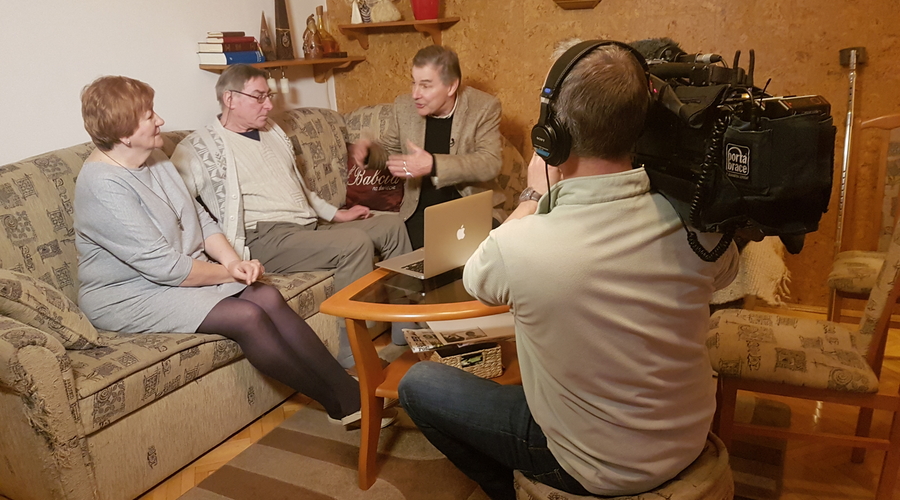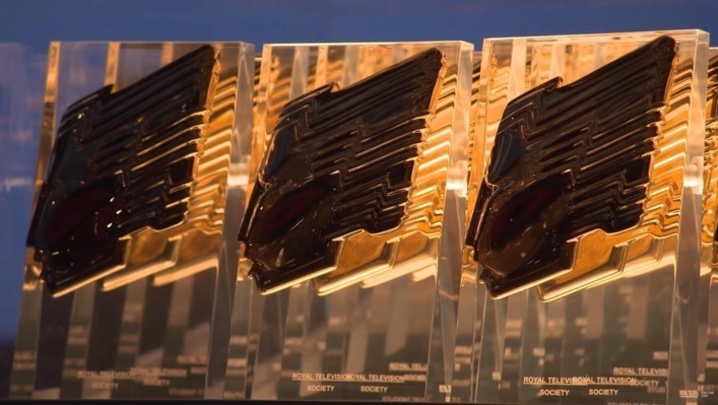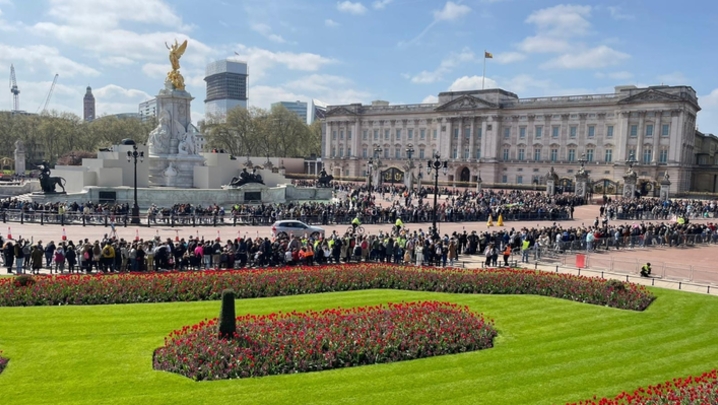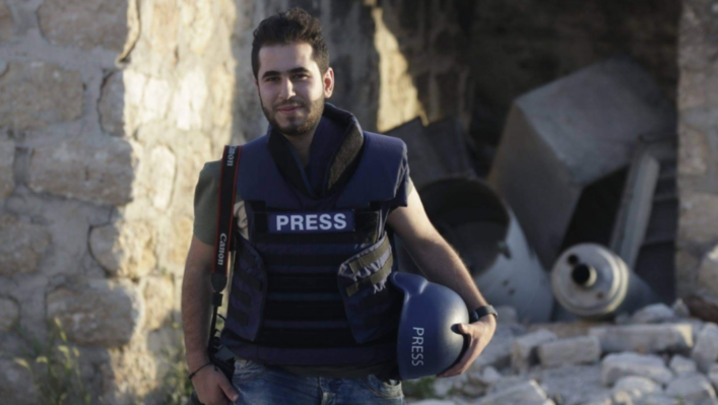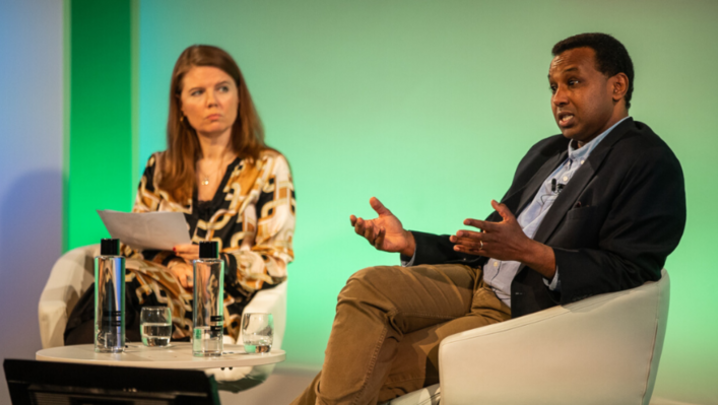“What happened here in the 1980s changed the face of Europe,” ITN’s Tim Ewart begins in his final report for On Assignment.
Thirty-five years since he last reported from Poland, the first domino to fall in the gradual collapse of the Soviet Union, Ewart has returned to find uncertainty and unrest in the air.
Poland’s ruling right-wing populist Law and Justice party is seen by many to be “too authoritative, too right-wing,” he explains.
“There is now a protest movement or certainly a lot of people who are unhappy with the direction that the Polish government is moving in. So the irony is that 35 years after I was there – 37 years after [trade union] Solidarity was born – there’s a new protest movement.”
The protests in the 1980s, which began in the shipyards of Gdansk and on the streets of Warsaw, changed the face of Europe and were, believes Ewart, “the first brick[s]… to be pulled out of the Berlin Wall”, ultimately leading to the unravelling of the Soviet Union.
“Poles stood up [to] what they regarded as an oppressive regime, effectively run from Moscow.”
Ewart has returned to Gdansk, where he reported from in the 1980s to ask the question: is it all happening again?
He explains, “back in the 80s, Poles were pretty united: there was really very little support for the communist regime, whereas the Solidarity movement had massive support.”
The sense in Poland, he reports, is that the current circumstances are unlike the events of the 1980s. “The point that my cameraman made is that Poles only unite when there is a common external threat – and there was perceived to be, in those days, an external threat from the power of the Soviet Union which they regarded as the puppet master of the then-communist regime.”
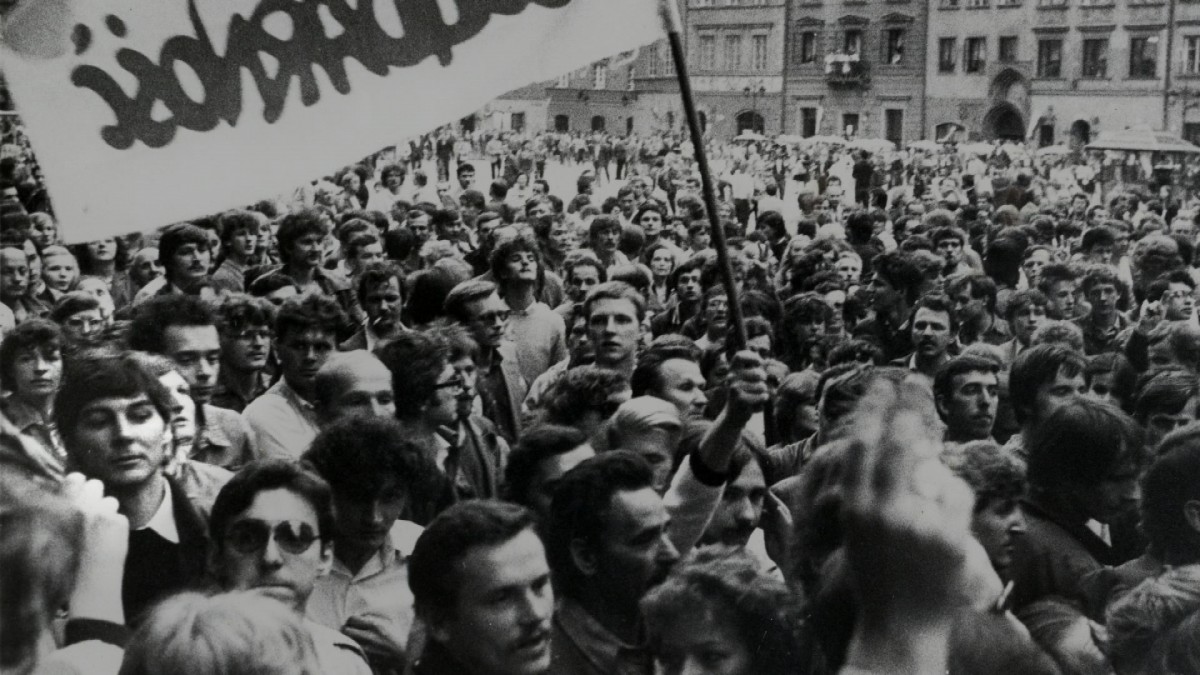
Throughout his report, Ewart is reunited with people he knew in the 1980s. He talks to Adam Racewicz, who lost his job for his part in the Solidarity protests. “We met him back then and he was a young guy with a young wife and a baby,” Ewart recalls. “He didn’t know where to turn, he didn’t know what work he was going to get.”
Watching the footage of the time, proved too much for the former shipyard worker, who was brought to tears at the pictures of him and his colleagues as young men, demonstrating against the government.
The Gdansk of 2017 is a very different Gdansk to the city Ewart remembers, having not been in the past 35 years.
“It was extraordinary in a way,” he says. “Now you get off a plane from Luton [and] you’re in this wonderful city where people go for weekends, partying, there are brilliant restaurants there. It’s a lovely thriving place.”
“Well, in my day we spent our time hiding in rooftop apartments trying to film the ZOMO (riot police) breaking up demos in the shipyard.”
“All the trips I made to Gdansk back in the 80s [were] spent hiding around places which were scenes of conflict.”
He remembers a particular hotel that journalists would use: "all the cameramen and all the photographers used to take rooms on the first floor overlooking the railway station, and one afternoon the police just went down the corridor and arrested everybody, threw them out.”
Warsaw was Ewart’s first foreign posting after he joined ITN in 1981.
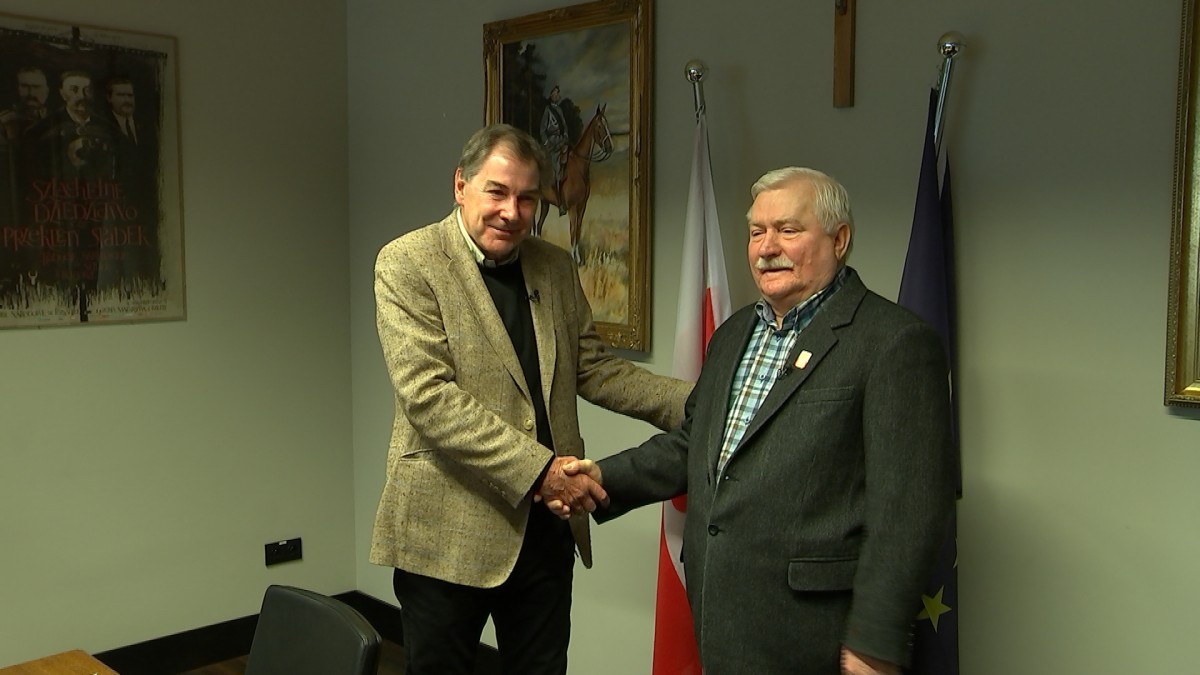
“People talk of the stresses and strains of the job… I just think I was an incredibly lucky person. I went to places, met people, witnessed events that I couldn’t have dreamed of.”
The Warsaw job was followed by postings in Washington, Moscow and Africa.
“The job I always wanted was to become the ITN Washington Correspondent,” Ewart admits. “It was the job, to me, to end all jobs. That just struck me as being the most exciting job that you could have. ITN just epitomised the excitement of TV journalism and of news gathering.”
Ewart now hangs up his hat as ITV’s Royal Correspondent – although, he says, he wasn’t the first choice for the role. “It was initially offered to Penny Marshall, who’s my wife.” He laughs. “She turned it down.”
“I was lucky and things were interesting when I took that job on: William and Kate, the Queen’s Diamond Jubilee, Royal babies, the Royal Wedding…”
However it is by returning to Poland that Ewart has decided to round off his time at ITN.
“That was a momentous period,” he remembers. For Ewart, as much as journalism is about events, strong personalities are bread-and-butter of televison news, and the personalities he has covered in his 36 years at ITN make for an impressive role call.
Among them is former Polish Prime Minster Lech Wałęsa, "a controversial figure in many ways," he says, "but [he] was an electrician who got up, stood on a forklift truck, made a speech and changed the face of Europe.” He continues. “Ronald Reagan, Mikhail Gorbachev, Nelson Mandela, Robert Mugabe, Kate Middleton, the Queen…
“Apart from being in fantastic places and so on, I have been very lucky with that cast of characters - larger-than-life figures, love them or loathe them, fear them or not – they were all great characters to cover in television news.”
Tim's final report airs as part of On Assignment on Wednesday 17th May at 10.50pm on ITV.

